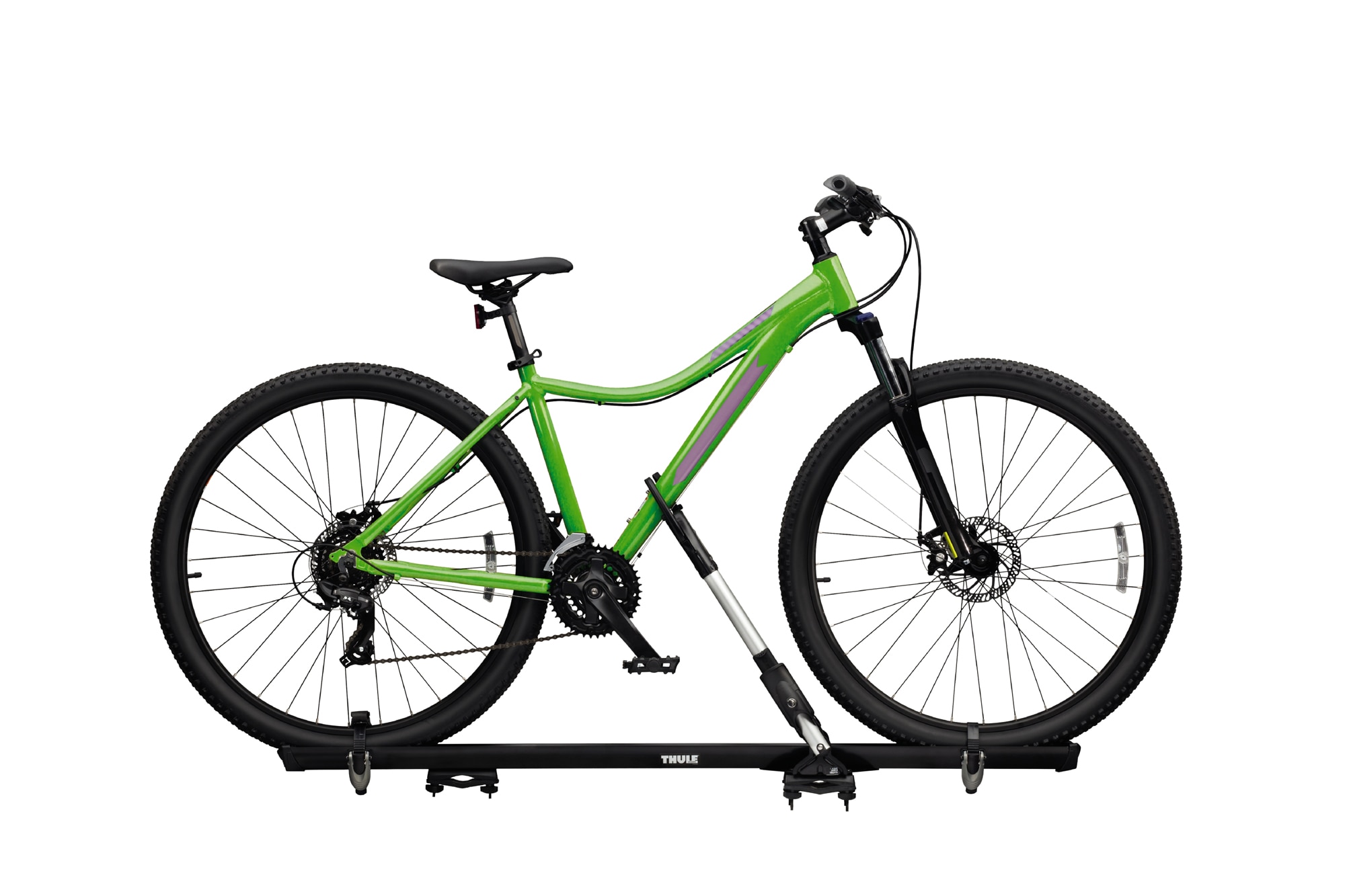Everything You Need to Know About Car Bike Racks
There are plenty of options when it comes to bike racks.
 Mopar
Mopar
The pandemic made biking incredibly popular because it offered us a way to get out of the house while providing a reduced risk of being exposed to COVID-19. In 2020 alone, bike sales revenue grew by 45%, according to the global market information company, NPD Group. While sales tapered off in 2021, NPD predicts 2022 could be equally flush for outdoor activity.
Whether pedaling your tail off as the pandemic wanes or thinking about picking up the cycling hobby, you should consider car bike racks to take your bicycle with you on the road. Here’s everything you need to know about car bike racks.
Types of Car Bike Racks
Bike racks come in a variety of styles to address different needs. Here are three of the most common types of car bike racks.
Hitch Bike Racks
Hitch bike racks plug into a vehicle's hitch receiver and hold bikes at the vehicle’s rear. If you have a hitch receiver on your car, SUV, or truck, you can easily use a hitch rack to transport your bike.
Hitch bike racks come in two main styles: platform and suspension. A platform hitch rack has a rail or platform your bike sits on, while a suspension rack holds your bike by the frame. Hitch racks are easy to install and take off your car quickly since they just slot into your trailer hitch. They’re also easy to load since you don’t have to lift your bike above about waist level. They can carry up to four bikes and don't require you to remove the bike’s wheels.
There are some downsides to using a hitch rack. They can be a bit pricey compared to trunk and tailgate rack types. Hitch racks restrict access to the trunk or cargo area; in some cases, they can obstruct the outward rear view from your vehicle.
Roof Bike Racks
Roof bike racks are popular because they don’t restrict access to the trunk or cargo space and use unused space on your vehicle’s roof. They also don’t block your line of sight around the car.
These racks mount to roof rails, frames around your windows, or via suction cups to your roof. With most roof racks, you can carry up to four bikes on your roof. Some bike roof racks require you to remove the front wheel of the bikes to secure them to the rack, while others do not.
These racks can be great if you do a lot of frequent traveling with your bike. Taking the roof rack on and off can be difficult, and if you’re shorter, getting your bikes on top of your car can be awkward. Roof racks are the least aerodynamic of the rack types and can reduce your fuel economy by up to 30%. It’s also critical to remember you have your bike on top of your vehicle if you’re pulling into a garage or entering a parking structure with a low roof. You can do significant damage to your bikes and vehicle if you hit the garage with bikes loaded on top, not to mention the damage you can do to your ego.
Trunk and Tailgate Bike Racks
Typically, trunk and tailgate bike racks attach to the truck or rear door of your SUV or car with straps and hooks. They are the most affordable bike rack form and tend to be the lightest and easiest to install. Like hitch bike racks, these don’t require you to lift the bikes very high to load them, so they're easy to use.
Most trunk racks can carry a maximum of three bikes. You must choose a rack that fits your vehicle’s trunk or cargo door. The biggest drawback of trunk-mounted bike racks is that they are not secure from theft since they are not as solidly attached to your vehicle as the other options. It is also important to note that these can scratch or hurt the finish of the vehicle.
What to Consider When Shopping for a Car Bike Rack
Here are the main questions to consider when looking for the right bike rack for you:
- What kind of vehicle do you own?
- How many bikes do you want to carry at once?
- How do you want to load your bikes?
- How secure does the rack need to be?
- How safe do the bikes need to be on the rack?
How Much Does a Car Bike Rack Cost?
Car bike racks cost as little as $25 for a trunk-mounted version, while some roof-mounted racks can cost over $1400. Hitch-mounted racks usually fall in the middle of this range (around $300 to $850). These prices don’t include the cost of additional items like roof rails or the hitch and its installation since those will be determined by the kind of vehicle you have.
Written by humans.
Edited by humans.
 Abigail Bassett
Abigail BassettAbigail Bassett is an award-winning freelance journalist based in Los Angeles. There, she covers everything from automotive and business to travel and luxury. She has a passion for 1980s-era Volvo wagons, microcars, and dogs. She is also a World Car Juror.
Related articles
View more related articles